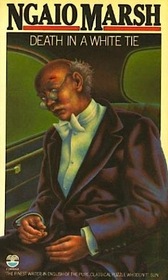So yeah, it’s been a while – life, and all that – but I was discussing Anne of Green Gables on Twitter (as one does), and suddenly recalled that I’d written a piece about Anne in the twenty-first century. I’d shopped it around to a few sites but everyone said no. I can’t remember quite why I didn’t post it here then (as I did with most everything else that got rejected), but it might have had something to do with how profane it is, which wasn’t the vibe I was going for in this blog in 2012.
But that was then and this is now, you fuckers. Given that the world is much more of a giant trash fire than it was seven years ago, it feels like throwing up a few bad words is hardly going to worsen the discourse. The language is probably not as shocking as the cultural references. So here it is, friends, read and enjoy.

Anne of Green Gables in 2012
(With affectionate and abject apologies to L.M. Montgomery)
Mrs. Rachel Lynde is Properly Horrified
“Well, they didn’t pick you for your looks, that’s for damn sure,” was Mrs. Rachel Lynde’s emphatic comment. Mrs. Rachel was one of those delightful and popular people who pride themselves on speaking their mind without fear or favor. “Seems like she got hit too many times by the ugly stick, Marilla. Come here, kid, and let me look at you. Lord Jesus Mabel, did any one ever see such freckles? And hair as red as carrots! Get over here, kid, for pete’s sake.”
Anne “came there,” but not exactly as Mrs. Rachel expected. With one bound she crossed the kitchen floor and got right in Mrs. Rachel’s face, scarlet with anger, lips quivering, trembling from head to foot.
“Up yours, you fat fucker of a she-bitch,” she cried in a choked voice, stomping her foot on the floor. “I hate you – I hate you – I hate you –“a louder stamp with each assertion of hatred. “How dare you call me skinny and ugly, you old turd bag? How dare you say I’m freckled and redheaded, you shit-sucking ass-reamer? You are a rude, dong-licking, skanky old hag!”
“Anne!” exclaimed Marilla in consternation.
But Anne continued to face Mrs. Rachel undauntedly, head up, eyes blazing, hands clenched, passionate indignation exhaling from her like an atmosphere.
“How dare you say such things about me, you cock-sucking asshole?” she repeated vehemently. “How would you like to have such things said about you? How would you like to be told that you are the size of a house and mega-skeevy and probably haven’t gotten any action in twenty years? I don’t care if I do hurt your feelings by saying so! I hope I hurt them, you fat-faced old shit bag! You have hurt mine worse than they were ever hurt before, even by Mrs. Thomas’ intoxicated husband. And I’ll never forgive you for it, never, never!
Stamp! Stamp!
“Did anybody ever see such an oversensitive little cunt!” exclaimed the horrified Mrs. Lynde.
***
Anne’s Confession
On the Monday evening before the sleepover Marilla came down from her room with a troubled face.
“Anne,” she said to that small personage, who was opening a Diet Coke by the spotless table and singing Foreign Shit with a vigor and expression that did credit to Diana’s teaching, “did you see anything of my iPad? I thought I put it in my Coach bag when I came home from Pilates yesterday evening, but I can’t find it anywhere.”
“I – I saw it this afternoon when you were away at your therapy session,” said Anne, a little slowly. “I was passing your door when I saw it on the bedside table, so I went in to look at it.”
“Did you watch videos?” said Marilla sternly.
“Y-e-e-s,” admitted Anne, “I was watching Holy Shit Cats just to see what everyone in school was talking about.”
***
Anne Comes to Grief in an Affair of Honor
Then Josie Pye dared Jane Andrews to eat the earthworm wiggling across the lawn without gagging or using her hands, which Jane Andrews gamely tried to do, but gave up after the third mouthful of dirt and had to confess herself defeated.
Josie’s triumph being rather more pronounced than good taste permitted, Anne Shirley dared her to French kiss Julia Bell for two minutes by the clock. Now, French kissing requires more skill and steadiness of tongue than one might suppose who has never tried it. But Josie Pye, if deficient in some qualities that make for popularity, had a least a natural and inborn gift, duly cultivated by daily sessions with her sister Gertie, for French kissing. Josie frenched Julia with an enviable skill and an airy unconcern which seemed to imply that a little thing like that wasn’t worth a “dare.” Reluctant admiration greeted her exploit, for most of the other girls could appreciate it, having fantasized about such things themselves in their bedrooms at night. Josie finished her two minutes, flushed with victory (Julia was similarly flushed), and darted a defiant glance at Anne.
Anne tossed her red braids.
“I don’t think it’s such a very wonderful thing to French-kiss someone for only two minutes,” she said. “I knew a girl in Marysville who sexted a boy in her class…full frontal.”
“I don’t believe it,” said Josie flatly. “I don’t believe anyone could sext a boy full frontal. You couldn’t, anyhow.”
“Couldn’t I?” cried Anne rashly.
“Then I dare you to do it,” said Josie defiantly. “I dare you to get your iPhone and text Charlie Sloane a photo of you. Full nudey.”
Anne turned pale, but there was clearly only one thing to be done. She walked towards the house to get her PDA. All the fifth-class girls said, “Oh!” partly in excitement, partly in dismay.
“Don’t you do it, Anne,” entreated Diana. “He’ll post it on Facebook and it’ll go viral and you’ll get a reputation and never get into McGill. Never mind Josie Pye. It isn’t fair to dare anybody to do anything so skanky.”
“I must do it. My honor is at stake,” said Anne solemnly, walking toward the house and starting to unbutton her shirt.
***
Vanity and Vexation of Spirit
It was dark when supper was ready, and still no sign of Anne, coming hurriedly over the pedestrian overpass or up Lover’s Lane through the Hester Gray Estates, breathless and repentant with a sense of neglected duties. Marilla filled the dishwasher grimly. Then, wanting to check messages on her Droid, she went up to the dark home office. Grabbing her phone, she turned around to see Anne herself lying on the guest bed, face downward among the pillows.
“Holy crap,” said astonished Marilla, “have you been asleep, Anne?”
“Nuh,” was the muffled and somewhat indistinct reply.
“Are you sick then?” demanded Marilla anxiously, going over to the bed.
Anne cowered deeper into her pillows as if desirous of hiding herself forever from mortal eyes.
“Nuh. But peeze, Mawillah, guh away an’ duhn’t look a’ meh. Ah’m suh bummed an’ ah don’ cay-uh about shkool or Facebuh’ or fwends ennymoah. Ah’ll nevah go ennywhe-ah agin. Mah life is ovah. Peeze, Mawillah, guh away an’ dunt look a’ meh.”
“Did any one ever hear such BS?” the mystified Marilla wanted to know. “Anne Shirley, what the hell is the matter with you? What have you done? Get right up this minute and tell me. This minute, I say. There now, what is it?”
Anne had slid to the floor in despairing obedience.
“Look a’ mah mouf, Mawillah,” she whispered.
Accordingly, Marilla turned on the light and looked scrutinizingly at Anne’s mouth. It certainly had a very strange appearance.
“Anne Shirley, what have you done to your mouth? Why, it’s green!”
Green it might be called, if it were any earthly color – lips and cheeks distended and a queer, bluish-purplish green, with red streaks here and there to heighten the ghastly effect. Never in all her life had Marilla seen anything so grotesque as Anne’s mouth at that moment.
“Yeth, it’th gween,” moaned Anne. “Oh, Mawillah, Ah’m such a fweakin’ idiut.”
“I don’t know how you screwed this up, but I mean to find out,” said Marilla. “Come right over to the light so I can see. Now, then, what did you do to your mouth?”
“Ah pierthed mah tung an’ it got all i’fected.”
***
The Bend in the Road
Halfway down the hill a tall, pale, handsome lad came whistling out of a gate before the Blythe homestead. It was Gilbert, and the whistle died on his lips as he recognized Anne. He raised his eyebrows in greeting, but he would have passed on in silence, if Anne had not stopped and held out her hand.
“Gilbert,” she said, with scarlet cheeks, “I want to thank you for giving up your place at Harvard for me. It was very good of you – and I want you to know that I appreciate it.”
Gilbert took the offered hand eagerly, his tawny eyes flashing.
“It wasn’t particularly good of me at all, Anne. I was pleased to watch you sleep, uh, I mean, to be able to do you some small service. Are we going to be friends after this? Have you really forgiven me?”
Anne laughed and tried unsuccessfully to withdraw her hand. His hand remained strangely cold in hers.
“I forgave you that day by the pond landing, although I didn’t know it. What I bitch I was. I’ve been – I may as well make a complete confession – I’ve been sorry ever since.”
“We are going to be the best of friends,” said Gilbert, jubilantly. “We were born to be together forev- to be good friends, Anne. You’ve thwarted destiny long enough. Come on, I’ll walk home with you.” As they walked in the fading twilight his alabaster skin glowed, accentuating his perfect form.
M.B. Culver has never died her hair green or fallen off a ridgepole.

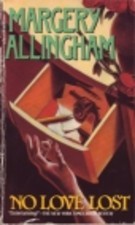
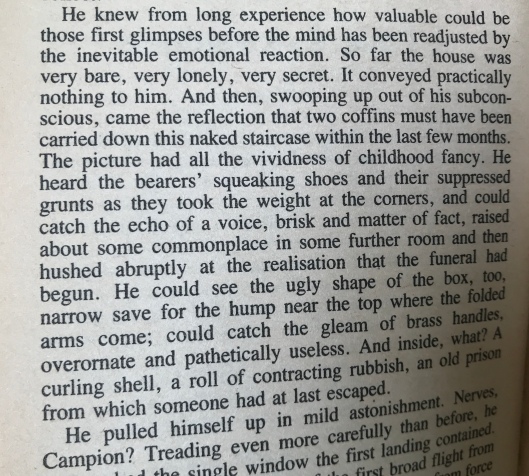
 In case you’ve been in a coma or hiding under a rock for the last several weeks, you’ll know that it’s The Holiday SeasonTM in the Western World. Christmas trees! Santa Claus! Presents! Carolers! Holiday lights! FIVE GOLDEN RINGS!!
In case you’ve been in a coma or hiding under a rock for the last several weeks, you’ll know that it’s The Holiday SeasonTM in the Western World. Christmas trees! Santa Claus! Presents! Carolers! Holiday lights! FIVE GOLDEN RINGS!! It’s also the month of my daughter’s birthday, which is great and festive but sort of doubles the preparation efforts, as we try to keep her birthday as separate as possible from Jesus’s. Sometimes as I’m running around Market Basket or standing in an endless line at Marshalls, I feel the burden of the enforced cheerfulness and the to-do list and ALL THE STUFF, and it gets a bit overwhelming. I want to be happy at this time of year, but I don’t appreciate 80 zillion people and toys yelling at me to BE HAPPY, THIS IS THE BEST TIME OF YEAR DANGIT, SMILE ALREADY. Eek.
It’s also the month of my daughter’s birthday, which is great and festive but sort of doubles the preparation efforts, as we try to keep her birthday as separate as possible from Jesus’s. Sometimes as I’m running around Market Basket or standing in an endless line at Marshalls, I feel the burden of the enforced cheerfulness and the to-do list and ALL THE STUFF, and it gets a bit overwhelming. I want to be happy at this time of year, but I don’t appreciate 80 zillion people and toys yelling at me to BE HAPPY, THIS IS THE BEST TIME OF YEAR DANGIT, SMILE ALREADY. Eek.



 to see what all the fuss was about. The theater was packed with women of all ages, a few of them with husbands or boyfriends in tow. I didn’t really know what to expect.
to see what all the fuss was about. The theater was packed with women of all ages, a few of them with husbands or boyfriends in tow. I didn’t really know what to expect.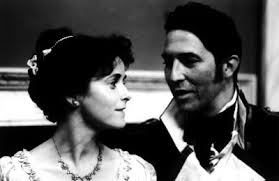
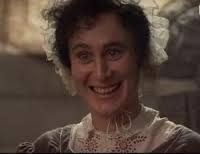
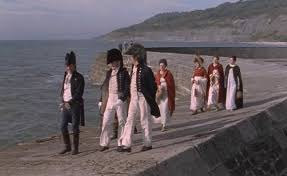
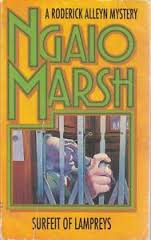

 But perhaps she understood the destruction implicit in Bolshevism better than most or, like Fox, she was content with “the way of things.”
But perhaps she understood the destruction implicit in Bolshevism better than most or, like Fox, she was content with “the way of things.”